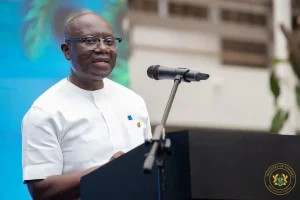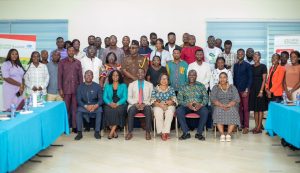The Ghana Immigration Service (GIS), which operates under the Ministry of Interior, has received 30 cars from the government to help the country maintain efficient border control.
The fleet comprises 23 Toyota Land Cruiser GXRs, three Toyota Land Cruiser Twin Turbos, one Toyota Land Cruiser VXS, one Toyota Tundra, and two Toyota Double Cabin Pick-ups. The Minister of Interior, Ambrose Dery, who delivered the cars to the Service at a brief ceremony in Accra, emphasized the importance of GIS in efficiently maintaining the country’s borders. He stated that the cars will aid GIS in the aftermath of insurgencies and insecurity in West Africa. The Upper West Region member of parliament for Nandom claimed that the administration was aware of the dangers that these unwanted elements posed to the nation’s borders, particularly those in the north. He emphasized the government’s resolve to implement measures to deal with these problems. The automobiles were donated because the government sees the GIS as a crucial component of the security architecture that can address border concerns. “It is in this direction that we are gathered here today to unveil these vehicles to you for effective border management and security,” added Mr. Dery.
Kwame Asuah-Takyi, the Comptroller General of GIS, who accepted the delivery of the cars on behalf of the service, expressed his appreciation for the government’s kindness. He made it clear that the extra cars will aid in meeting the operational and administrative requirements of the service in defending the nation’s borders and battling crime. Mr. Asuah-Takyi went on to say that the cars’ contribution will allow the operational and administrative staff to start operations and help commanders efficiently oversee people and conduct border patrols.
“To improve operational effectiveness and visibility in all sectors across the nation, the Service is already conducting an ambitious and radical reform.” However, he emphasized that more logistical help must be provided due to the changing circumstances in the northern neighboring nations.
With an emphasis on the weaker northern borders, he added, this proactive strategy is essential to successfully confronting new challenges that endanger the safety, peace, and security along Ghana’s borders. As a result, Mr. Ansuah-Takyi urged private organizations to provide logistical assistance for the GIS.
“I will enjoin all well-meaning individuals and corporate bodies to also lend a hand of support to the service, for when the borders are secured, the country is safe,” he stated.









